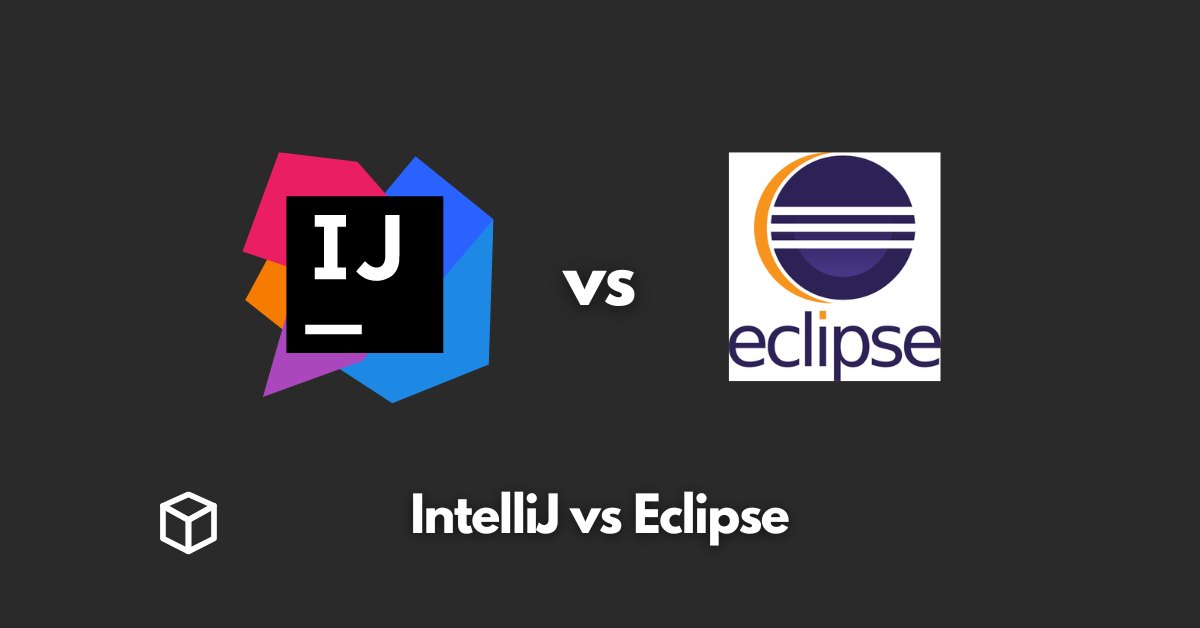Integrated Development Environments (IDEs) are essential tools for any software developer, providing a comprehensive set of features to aid in the development process.
The two of the most popular IDEs for Java developers are IntelliJ and Eclipse.
In this article, we will take a detailed look at both IDEs, highlighting their features, benefits, and differences.
We will also provide a comparison of IntelliJ and Eclipse and give a final recommendation for which IDE is best suited for different types of Java developers.
Overview of IntelliJ
IntelliJ is a powerful and user-friendly IDE that is widely used by Java developers.
One of its most notable features is its efficient code navigation, which allows developers to easily navigate through their codebase and find what they need quickly.
This can be a huge time saver for developers, as it eliminates the need to manually search through large code files.
Additionally, IntelliJ has built-in debugging tools that make it easy to find and fix errors in your code.
These debugging tools include the ability to set breakpoints, step through code, and evaluate expressions, which can make the debugging process much more efficient.
IntelliJ also has a wide range of popular plugins and integrations available, including the Spring Framework and version control systems like Git.
This allows developers to tailor the IDE to their specific needs and workflows.
The Spring Framework is a popular Java framework for building web applications, and the ability to integrate it into IntelliJ can be a huge time saver for developers who are working with the Spring Framework.
The Git integration allows developers to manage their codebase using Git, which is a widely used version control system.
Many notable companies and projects use IntelliJ as their primary IDE, including Google, Square, and Pivotal.
This is a testament to the power and versatility of the IDE, as these companies have large and complex codebases that require a robust and efficient development environment.
Overview of Eclipse
Eclipse is another popular IDE for Java development that is known for its open-source nature and wide range of plugins and integrations.
It comes with the Java Development Tools (JDT) which provides a robust set of features for Java development, including code editing, debugging, and source code management.
The JDT is a set of plugins that provides a comprehensive set of tools for Java development, including a Java editor, a Java debugger, and a Java profiler.
Eclipse also has the Mylyn task management tool, which allows developers to manage their tasks and work more efficiently.
Mylyn is an Eclipse plugin that allows developers to organize and manage their tasks, and it can be integrated with other tools such as bug trackers and version control systems.
Additionally, it has a wide range of plugins and integrations available, including ones for version control systems like Git and for different frameworks such as Spring.
Eclipse is used by many notable companies and projects, including IBM, SAP, and the Eclipse Foundation.
This is a testament to the power and versatility of the IDE, as these companies have large and complex codebases that require a robust and efficient development environment.
Comparison of IntelliJ and Eclipse
When comparing IntelliJ and Eclipse, it’s important to note that both IDEs have their own strengths and weaknesses.
IntelliJ is generally considered to have a more user-friendly interface and better code navigation capabilities.
The interface is easy to use, and it’s easy to find what you’re looking for. On the other hand, Eclipse is known for its open-source nature and an excellent range of plugins and integrations.
This is a huge benefit for developers who are looking for a more customizable development environment.
There are also some notable differences in terms of debugging capabilities.
IntelliJ has built-in debugging tools, while Eclipse relies on its plugins and integrations to provide debugging functionality.
This can be a disadvantage for Eclipse, as it may require the installation of additional plugins to achieve the same level of debugging capabilities as IntelliJ.
However, the vast range of plugins available for Eclipse can also provide additional features and functionalities that are not present in IntelliJ.
In terms of plugins and integrations, both IDEs have a wide range available, but IntelliJ is generally considered to have more high-quality plugins and integrations.
This is because IntelliJ is developed by JetBrains, a company that specializes in developing developer tools.
On the other hand, Eclipse is an open-source project, and the quality of its plugins and integrations can vary widely.
However, the open-source nature of Eclipse also allows for a larger community of developers to contribute and improve its plugins and integrations.
In terms of performance, IntelliJ is generally considered to be faster and more efficient than Eclipse.
This is because IntelliJ is designed to be lightweight and fast, while Eclipse can be slower due to its large number of plugins and integrations.
However, the performance difference may not be noticeable for small to medium-sized projects, but for large projects, the difference in performance could be significant.
Conclusion
In conclusion, both IntelliJ and Eclipse are powerful IDEs that have their own unique set of features and benefits.
IntelliJ is known for its user-friendly interface, efficient code navigation and built-in debugging tools while Eclipse is known for its open-source nature, wide range of plugins and integrations and the vast community that supports it.
It’s important to note that both IDEs are popular among Java developers, and the best IDE for a developer ultimately comes down to personal preference and specific needs.
In terms of which IDE is best suited for different types of Java developers, if you are looking for a more user-friendly and efficient development environment, IntelliJ may be the better choice.
On the other hand, if you’re looking for a more customizable development environment with a good number of plugins and integrations, then Eclipse may be the better choice.
We recommend that developers try both IntelliJ and Eclipse and form their own opinions on which IDE they prefer.
References
- IntelliJ IDEA Official Website: https://www.jetbrains.com/idea/
- Eclipse Official Website: https://www.eclipse.org/
- Comparison of Java Integrated Development Environments: https://en.wikipedia.org/wiki/Comparison_of_Java_integrated_development_environments
In any case, it is always worth trying both IDEs to get an idea of which one you are more comfortable with and which one better suits your development needs.
As a developer, it’s important to evaluate both IntelliJ and Eclipse and decide which one is the best fit for you and your projects.




